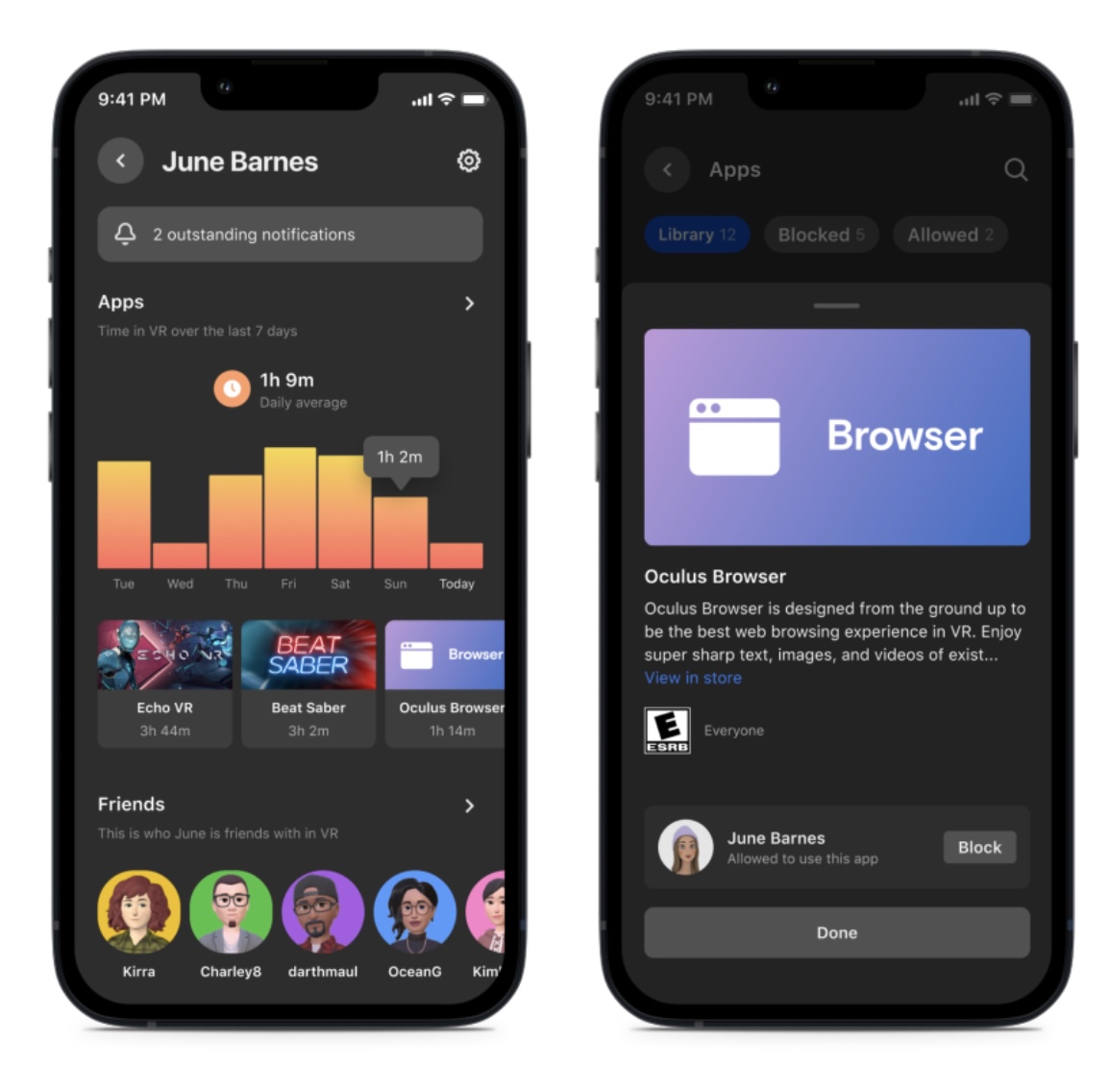Despite releasing its first virtual reality headsets in May 2019, Meta is only now adding parental supervision tools to its Meta Quest VR headset.
After last year’s rebranding spectacle, all eyes are on Meta as it tries to prove that its investments in VR were worth changing its name over. But with attention from the highest office in the United States on its safety features, Meta is trying to make its platforms safer for kids by rolling out a variety of parental supervision tools.
Sales of the Meta Quest 2 skyrocketed during the 2021 holiday season — in the two weeks following Christmas Day, estimates show that the Oculus Quest mobile companion app was downloaded around two million times. But as Meta’s headset became more popular, the lack of parental controls became a more glaring issue. The U.K.’s Information Commissioner’s Office applied added pressure by suggesting that the headset could breach its online children’s safety code.

Currently, Quest headsets allow users to set up an unlock pattern, like a passcode, to gain access to their device. In April, Meta said it will extend this functionality to apply to specific apps. That way, if a parent doesn’t want their child playing a certain game on a shared headset, they can set a specific unlock code for that app.
In May, Meta plans to add a feature that will automatically block teens from downloading apps that are deemed inappropriate for their age group by the IARC (Quest profiles are connected to Facebook accounts, which is how the platform knows your age). Still, if a young teen is using an account associated with their parent’s login, this defense may not be effective.
Over the coming months, Meta will continue to build out its suite of parental controls on the Quest. Through the Oculus mobile apps, parents will be able to access a Parent Dashboard, which allows parents to link to their child’s account.
The company additionally opened a Family Center to organize its tools and other parental resources.

“The process is initiated by the teen, and both the parent and teen have to agree to the experience,” Meta wrote in a blog post.
Housing these VR supervision tools in a mobile app is a smart move for parents who may feel more comfortable operating a mobile app than a VR headset. Through this mobile dashboard, parents can manage which apps their child can download according to their rating — so, for example, a parent could pre-authorize their teen’s account to download any all-ages apps. If a teen wants to purchase a paid app, the parent can approve or deny the request. The parent can also block the child from accessing certain apps, including the web browser and Link, which connects Quest headsets to PC VR games. Additionally, parents can view their child’s screen time, friends list and downloaded apps.
Quest headsets are intended for users age 13 and up, but of course, younger children will inevitably find their way into virtual reality. Even for teens, though, some apps are gated by age, like “Horizon Worlds” and “Horizon Venues,” two of Meta’s social VR apps.
Only in the “Horizon Worlds” welcome plaza are there any human moderators present, but their job seems more geared toward helping users who might have questions about how to take a selfie in the metaverse.
Meta’s Oculus VR companion app gained ~2M downloads since Christmas
“Horizon Worlds” has already been exploited for under-developed content moderation systems. BuzzFeed reported that it created a test world filled with content that’s banned from Facebook and Instagram, like QAnon conspiracies, but Meta’s content moderation system said that it didn’t violate guidelines. Some users even reported being sexually harassed and groped on the platform. Unfortunately, these experiences take place even on text-based web forums, but this kind of harassment can feel especially intense while in an immersive, unfamiliar virtual world. So far, Meta has instituted an optional personal boundary feature in an attempt to curb this behavior.
TechCrunch asked Meta for comment about how it can gate users under the age of 18 from accessing apps like “Horizon Worlds,” since many users reported that the platform is already overrun with children — several reviews of the app in the Quest Store include complaints about being followed around by misbehaving children.
“Today marks the first step on a longer journey and we plan to add more options over time,” a Meta representative told TechCrunch. They pointed to app-specific unlock patterns as a potential solution, but this only keeps children off the 18+ platform if their parent has the knowledge and foresight to do so. “Our parental supervision tools features will continue to develop and expand over time as we learn more about what parents and teens need from our platform.”
Ultimately, parental controls are only effective if parents and teens use them well — but rolling out these guardrails is the least Meta can do.
Meta to allow Horizon Worlds users to turn their avatar’s personal safety boundary off
Biden will address social media’s mental health impact at State of the Union































Comment